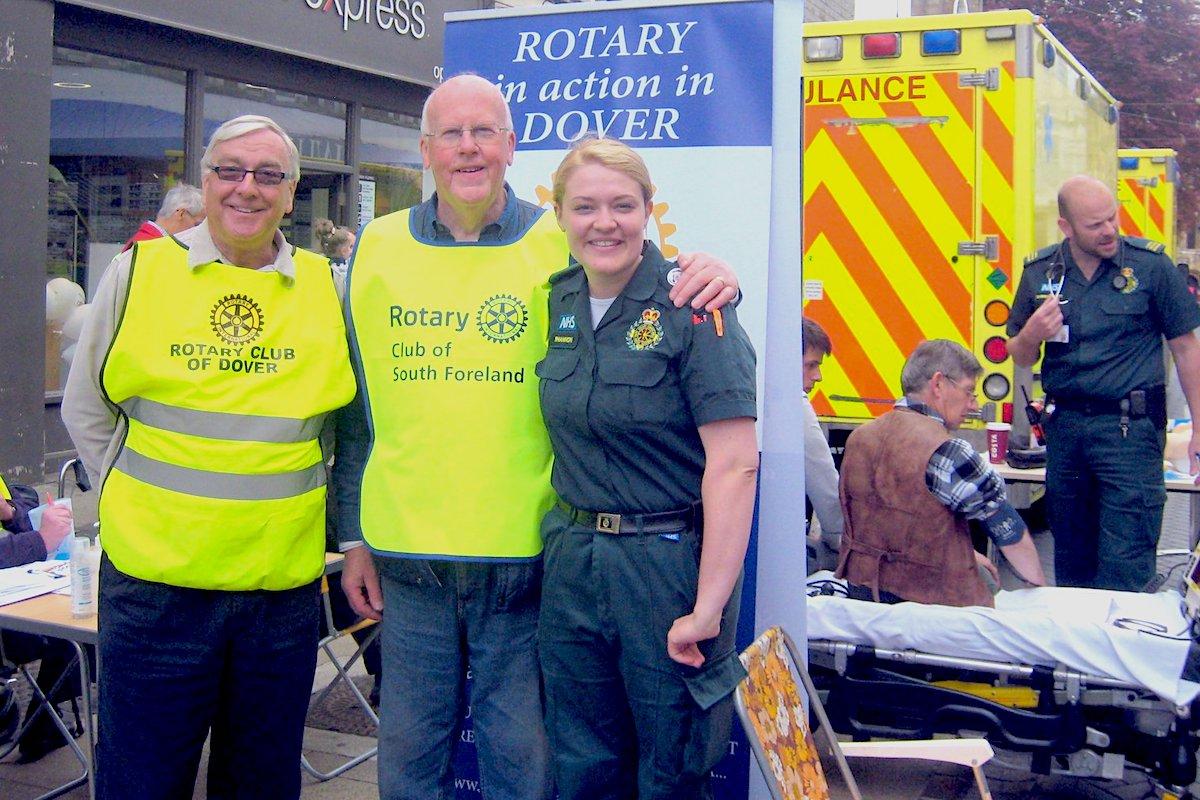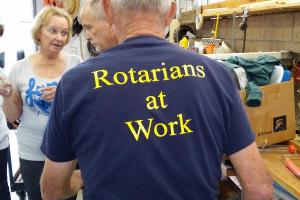FAQs - Emergencies Partnership
Frequently Asked Questions relating to the work volunteers may be asked to do by an organisation seeking extra support

Please click on the links below to see answers:
The Voluntary and Community Sector Emergencies Partnership is a partnership of local and national voluntary and community sector organisations. It was formed in response to learnings from several 2017 national crises, including Grenfell Tower fire.
Bringing together local, national and global expertise from the sector, the Emergencies Partnership aims to help people prepare for, respond to and recover from emergencies, so that they can rebuild their lives.
Yes, it's already on the referral forms being used by external organisations. When the national role is finally agreed it should be on the Cell and National docs.
When members/volunteers are under the supervision of someone else they do not have a responsibility for Health & Safety and Risk Assessments, only to follow instructions.
When they are in charge and undertaking activities representing Rotary they are responsible and the RIBI insurance will respond in the event of an insured incident.
We are in an emergency situation and there may be times when due to the situation you take on an unexpected activity e g a club helped to move waiting vaccination patients out of the rain into a nearby hall. It may not have been possible to complete the full risk assessment on the spot for this acitivity, but it is suggested that you record (perhaps on a phone with images) the safety procedures you have put in place so you have a record of your actions. In this case you have taken on responsibility for the task, and the volunteer team (Rotary/ non Rotary) and you need to brief them. You would in this instance be covered by the Rotary Insurance for the task you are supervising.
Your club lead will hear about a need for volunteering support from a Rotary Area Coordinator ( these are now all in place with a deputy) who will receive information from:
- a VCS EP Area Voluntary Service Liaison organision
- the Resilience Team through the District Resilience Officer
- direct contacts to your Rotary club in the normal way
The RPA will indemnify members if a claim is brought by a third party (including pupils) or employees. It will cover death, injury, or damage to third-party property, due to the school undertaking the rapid tests. The cover is subject to the usual RPA Membership Rules and its terms, conditions, and limitations. It will include defence costs and any damages/compensation that the Member is legally liable to pay to the claimant.
The RPA will not provide an indemnity to any other party (e.g. the machine manufacturer) if the other party incurs a legal liability. It is a requirement that risk assessments are undertaken, recorded, and adhered to.
In the event of loss or damage to any equipment that is owned by or the Member's responsibility (e.g., through a lease or hire agreement) used in the provision of the testing, the RPA will provide an indemnity to the Member for the cost of repair or replacement. The cover is subject to the usual RPA Membership Rules (including all limitations, conditions, and exclusions).
This is highly dynamic and requests for help will change a great deal over the coming days and weeks. Typically, we could be called on for transportation and delivery, marshalling at Covid centres, traffic management, providing guidance including funding advice, mental health and wellbeing support, carrting out Covid-19 tests at care homes and delivering food parcels.
All Rotarians will need to ensure that they respond as is appropriate to their personal situation with regards to age and health, so that they keep safe. We must also ensure that all volunteering takes place following government guidelines of the day. Rotarians only volunteer if they wish to.
All volunteers will be equipped with personal protective equipment (PPE) and anything else identified by the organisation undertaking the risk assessments in meeting the requirements of the task. Most tasks won't need any e.g. befriending phone calls.
Training will be provided in accordance with the tasks.
Red Cross is the lead body nationally.
Each club lead will keep a log of volunteering with dates and hours (proforma to be agreed). The Rotary Area Co-ordinator will maintain a log of requests and actions. They will retain the referral forms with outcomes as well as the request. It's all new. At the moment all actions are copied to Assistant Governors and the Resilience Officer so they can see the volume of requests, actions and outcomes. This is to cut down on asking co-ordinators what is happening. We’ll agree format and what is a reasonable and keep as simple as possible.
We have put in place group emails for working with the external organisations so personal emails are not shared. When a Rotarian volunteers it is up to them who they share their details with, but it's likely some personal details will be requested for health and safety reasons. It's a volunteer's choice what they share. No data is handed over by District externally.
We hope all. You will, however, be given the break down and names of those who have taken on key roles in your area.
It works alongside it.
They have a communication team in place, a website at https://vcsep.org.uk and Local liaison organisationshave shared across their networks.The Resilience team in Kent was been briefed along with key voluntary organisations and councils. Our district had a briefing from the Cell Engagement Manager.
We are in discussion re. involvement of Rotarians in spreading the word and Rotary Radio UK too. Kent Community Foundation and the Volunteers Services are doing some of this work already.
The provider of the request whose nane is on the request form. The urgency level is also shown on the request form. Individual Rotarians decide if it is suitable for them to volunteer.
We would be really surprised if a Rotary club opted out. We are a service organisation and it would be really disappointing if there weren't some Rotarians in every club who would be willing to help with tasks appropriate to their age, skills and health. There will be a variety of tasks and many will be familiar to Rotarians. The response so far has been really positive with Rotarians stepping up in times of need.
That depends on the task you are asked to do. If you are just sharing information about local needs no, but if you are undertaking a befriending role then yes. Hence as appropriate.
The organisation requesting support will be responsible for ensuring all volunteers working for the organisation are properly insured for the work they are being asked to do.
For any Rotary organised activities, Aviva (Rotary's insurer) says it is fully supportive of all volunteers that are coming forward to assist in these unprecedented times and have confirmed that Rotary's policy will extend to include activities needed to support the elderly and vulnerable that are undertaken by clubs in the name of Rotary; in providing services such as prescription collection, food deliveries and working in food-banks.
According to the Association of British Insurers (ABI), NHS Volunteer Responders and others who are volunteering to help their communities during the coronavirus outbreak do not need to contact their insurer to update their documents or extend their cover.
If you are using your own car for voluntary purposes to transport medicines or groceries to support others who are impacted by Covid-19, your cover will not be affected. You do not need to contact your insurer to update your documents or extend your cover. This applies to NHS Volunteer Responders, including transporting patients, equipment, or other essential supplies. If you are a Community First Responders or other 'Blue Light' volunteer, then please contact your insurer or broker.
back to page above this...

Emergencies Partnership
back Rotary supporting the Voluntary and Community Sector Emergencies Partnership